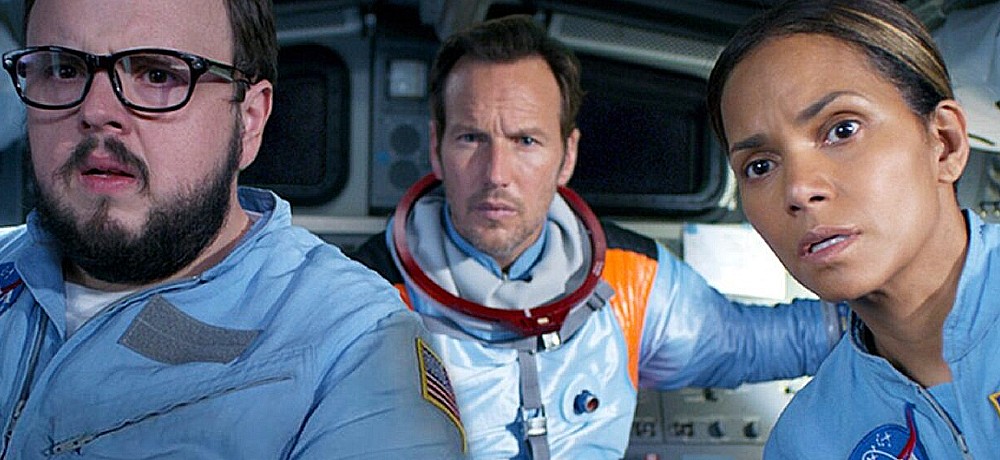


Roland Emmerich has become a genre unto himself. Give the director 100 million dollars and a star-studded cast, and pitch him any extreme situation--aliens, tsunamis, earthquakes, monsters, terrorists--and he makes it work. So pairing him with a comet in the disaster movie Moonfall should be a slam dunk, right?
Emmerich, who has wreaked so much havoc in Independence Day and Day After Tomorrow, expands his modus operandi to the outer limits of space, where a moon, comet and alien hurtle toward earth. In the film, writers Harold Kloster and Spenser Cohen have upped the ante, throwing every possible disaster at the screen. But they've forgotten about one thing: coherence.
When a spacecraft carrying research samples from NASA explodes in the atmosphere--Patrick Wilson appears in this bonkers riff on Gravity, with a giant alien--scattering its debris across the galaxy, Brian, Jocinda (Halle Berry) and Alan (Frank Fiola) are understandably traumatized. It causes Brian to lose his job, his family, his house and the thing he loves most, his Ford. Enter an amateur astronomer, K.C. (John Bradley), who notices the moon has been behaving strangely, with some mysterious force altering its orbit and threatening to destroy Earth, or large parts of it, in a matter of days.
Before you can say "don't look up," meteors are falling from the sky. The ocean sways back and forth like a glass of water; shock waves slice people in half like fruit. Like any disaster movie, there's at least a dozen shots of Los Angeles going up in smoke. All the main characters (K.C., Brian, Jocinda) join forces in an attempt to stop this mayhem, which seems to be getting worse by the day. Explosions, tsunamis, comets and car chases ensue, and soon Brian is off to space, which is on fire, trying to find his way on the moon as an alien strains to stop him.
One has to wonder if the entirety of Moonfall was reverse-engineered around a single scene, wherein Brian flies a spaceship over a massive tsunami. The scene does draw gasps and cheers from the audience--both the one seated in the theater, and the onscreen audience of onlookers watching the rocket takeoff below. This depiction of how we see Emmerich as a director, and the twists in his evolution as an auteur are what make Moonfall interesting. The drama is turned down, the camp turned up and Emmerich pulls it off.
It's just a little strange--and a little baffling--to see so many threads packed into such a short film. Emmerich's storytelling is cluttered at best, incomprehensible at worst, but the camp does make it go down easy. Lines like "everything we know about nature has been thrown out the window" or "the moon is a megastructure with plants inside" can't possibly be taken seriously, can they? For Emmerich's sake, let's hope not.
Movie Score: 2.5/5